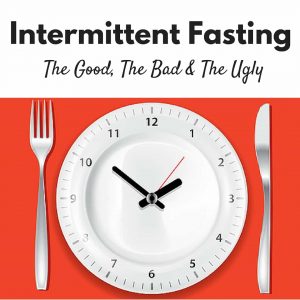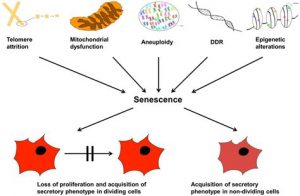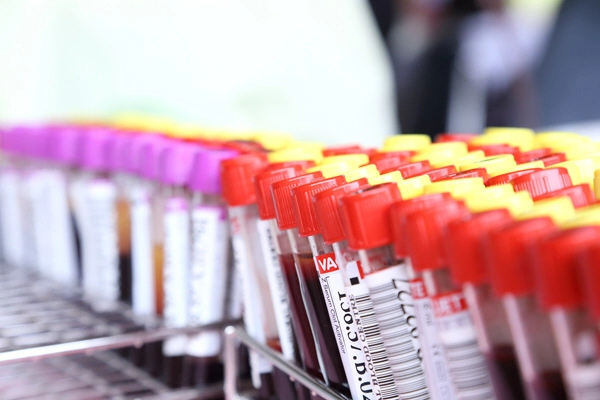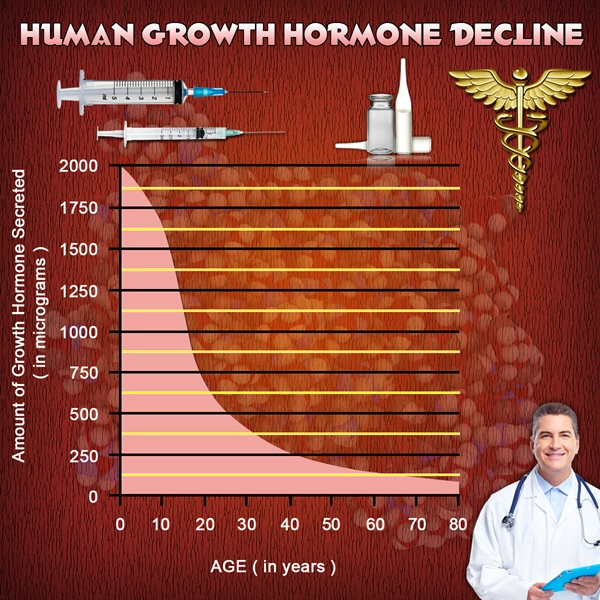Intermittent fasting (IF) has become increasingly popular recently. It is recommended by dietitians, weight loss gurus, longevity promoters, and athletes as a way to boost metabolic health and give the body an internal housecleaning.
The hype and enthusiasm surrounding IF sounds like it is a recent discovery, but it’s anything but  recent. Fasting goes all the way back to the ancient Greeks and has been practiced by several religions and spiritual disciplines like Christianity, Buddhism, and Islam.
recent. Fasting goes all the way back to the ancient Greeks and has been practiced by several religions and spiritual disciplines like Christianity, Buddhism, and Islam.
The good news about intermittent fasting is this: a little goes a long way. There is no need to starve yourself for days to derive the health benefits that IF delivers. In fact, going days without food can be dangerous, as well as challenging, and make you feel miserable. Fasting is a powerful technique, and it needs to be respected.
Here are a few ideas that will be helpful if you decide to give IF a try:
- There are a few different methods of intermittent fasting. One of the most common approaches is the 16:8 method. As the ratio implies, all food is consumed within an 8-hour period out of the 24-hour day. For example, breakfast at 8:00 AM, lunch at noon, and dinner before 4:00 PM. This is just an example; you can set your eating window whenever that works for you.
- Another popular approach is the 5:2 fasting plan. This entails eating normally five days a week and selecting 2 days to restrict your calories to 500-600. Finally, there is the 24-hour approach. This means not eating anything for the entire day and is typically done once or twice a week.
- These methods are not set in stone. As mentioned earlier, you are free to get creative. For example, fasting for 16 to 18 hours and shortening the eating time to 6 to 8 hours is an option for shorter fasts (less than 24 hours). Usually, people skip breakfast and eat lunch and dinner. Fasting for more extended periods (over 24 hours) is not common, but in some cases, it can provide significant digestive system healing benefits. Always get clearance from your physician before beginning any fasting regimen since fasting might lower blood pressure and blood sugar levels. Also, some prescriptions (such as those for blood pressure and blood sugar) may need to be modified to ensure their safety and effectiveness while you are fasting.
- Be prepared for a boost in Human Growth Hormone (HGH). Fasting blowtorches fat. Fasting also skyrockets HGH, which uses fat as fuel by raising levels of vital enzymes. HGH is essential for maintaining muscle mass and bone density.
- Intermittent fasting is not for everyone. Fasting is not advised for children, if you are pregnant or nursing a newborn, or if severely underweight since these groups require more calories for ideal growth and nutritional intake. Also, if you have any eating disorder, fasting could aggravate your issue, so check with your doctor always!
- Why intermittent fasting works. The advantages of intermittent fasting might be significant. For example, fasting causes a condition called autophagy, which is the process of self-digestion by a cell through the action of enzymes originating from within the same cell that promotes the
 cannibalism of senescent cells. These cells no longer divide and are dead but continue to emit harmful toxins in a zombie-like fashion. According to many researchers, autophagy is the body's way of doing internal housecleaning, which is why fasting has life-extending possibilities.
cannibalism of senescent cells. These cells no longer divide and are dead but continue to emit harmful toxins in a zombie-like fashion. According to many researchers, autophagy is the body's way of doing internal housecleaning, which is why fasting has life-extending possibilities. - Stay safe. It bears repeating: fasting is powerful and not something to be taken lightly. Fasting can cause dehydration and electrode imbalances since water and salt intake are dramatically reduced. Some side effects of fasting are headaches and lightheadedness; moodiness; irritability; digestive issues; insomnia; halitosis (bad breath); and hunger and cravings. Typically, none of these side effects are severe, but you must be aware of them. Also, when breaking the fast, do not overeat.
https://goodmenproject.com/everyday-life-2/5-things-to-know-about-intermittent-fasting/

- Our Most Popular Diet Injection Programs (Call for Inquiry) [Last Updated On: December 28th, 2024] [Originally Added On: September 8th, 2020]
- How to Use Fasting to Boost Human Growth Hormone Levels [Last Updated On: June 22nd, 2024] [Originally Added On: January 12th, 2021]
- DASH Diet Overview and Review [Last Updated On: June 23rd, 2024] [Originally Added On: January 21st, 2021]
- Magnesium Supplementation for a Healthier You [Last Updated On: June 19th, 2024] [Originally Added On: January 25th, 2021]
- The Benefits of Intermittent Fasting: Lose Weight, Boost HGH, and Improve Glucose Levels [Last Updated On: June 18th, 2024] [Originally Added On: February 8th, 2021]
- Confused About Intermittent Fasting? [Last Updated On: November 15th, 2024] [Originally Added On: February 19th, 2021]
- The Do's and Don'ts of Calcium Supplements – Can I Grow Taller? [Last Updated On: November 22nd, 2024] [Originally Added On: March 6th, 2021]
- Benefits of Adding More Citrus Fruits to Your Diet [Last Updated On: November 8th, 2024] [Originally Added On: April 4th, 2021]
- The Benefits of Vitamin B12 -- Boost Metabolism and Energy with Vitamin B12 [Last Updated On: July 23rd, 2024] [Originally Added On: May 11th, 2021]
- Romaine Lettuce: Guinea Pigs Like It -- Why Not You? [Last Updated On: November 9th, 2024] [Originally Added On: June 12th, 2021]
- How to Lose Weight on a Plant-Based Diet and Keep the Weight OFF! [Last Updated On: November 16th, 2024] [Originally Added On: July 6th, 2021]
- Frozen Foods are Underrated: The Healthiest and Most Affordable Frozen Foods [Last Updated On: November 10th, 2024] [Originally Added On: July 18th, 2021]
- The “Soyboy” Idea – Do Soy-based Foods Feminize Males? [Last Updated On: November 11th, 2024] [Originally Added On: July 28th, 2021]
- Avoid These Foods That Reduce Testosterone [Last Updated On: October 12th, 2024] [Originally Added On: June 28th, 2022]
- Six Vitamins to Focus On if You Want Thicker, Youthful-Looking Hair [Last Updated On: August 6th, 2024] [Originally Added On: November 22nd, 2022]



List of USA state clinics - click a flag below for blood testing clinics.
Word Count: 644



















































